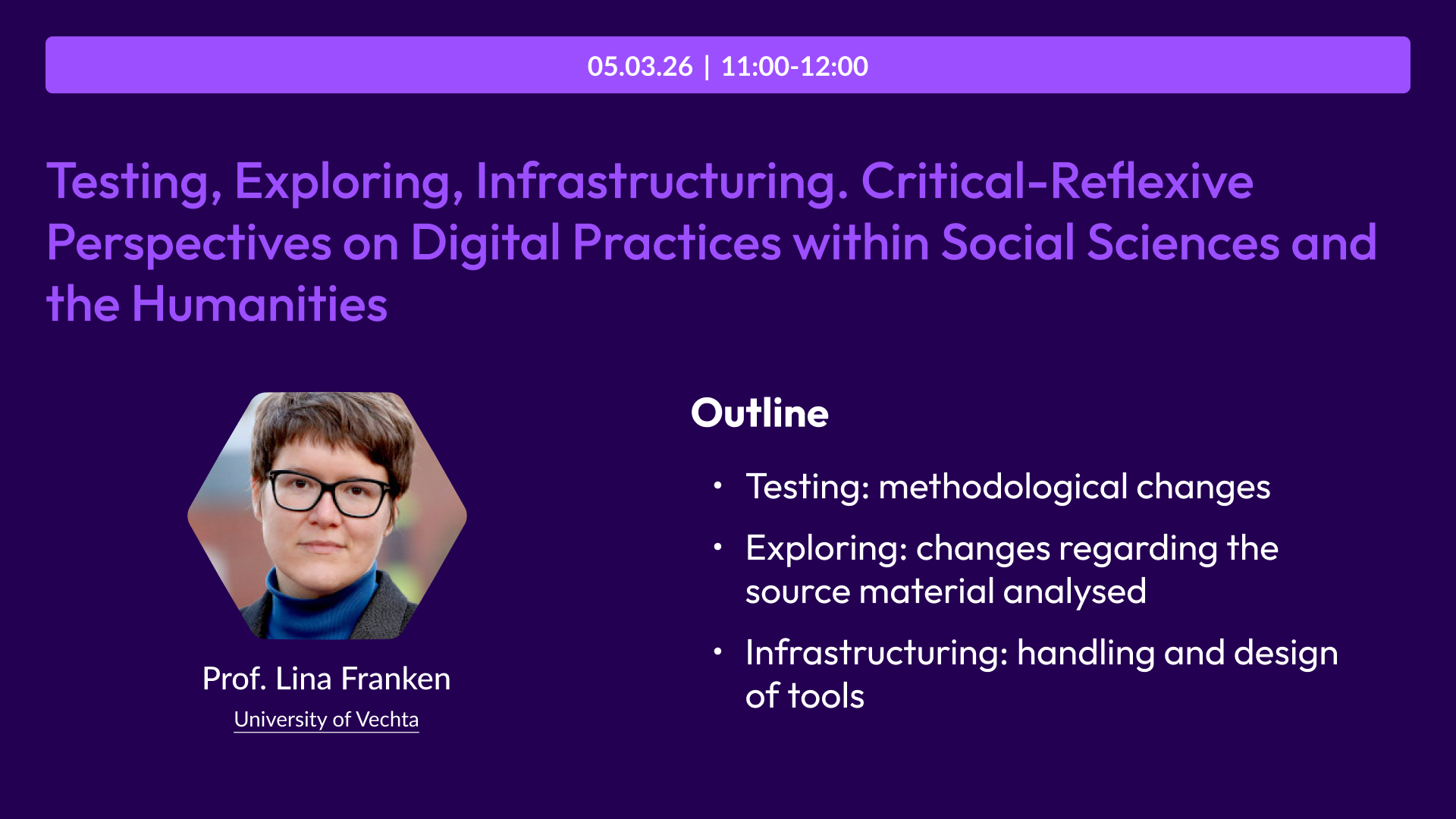Digital technology is changing the way research is conducted and shared. At the Leibniz ScienceCampus 'Digital Transformation of Research' (DiTraRe), our scientists investigate how digital tools affect their daily work - from data collection to their analysis, publication and communication. Within DiTraRe the challenges and opportunities of this transformation is explored in four disciplinary areas defined as “dimensions”.

We address the challenges posed by digitisation in four distinct research clusters.
The practical solutions developed here will be refined so that they can be applied more widely.
The "Protected Data Spaces" cluster is dedicated to the handling of sensitive data in sports science.
"Smart Data Acquisition" deals with intelligent data acquisition using the example of "smart laboratories" in chemistry.
The "AI-based Knowledge Realms" cluster is researching the effects of artificial intelligence in biomedical engineering.
We are furthermore investigating the influence of new forms of publications based on large amounts of data using the example of climate research in the "Publication Cultures" cluster.
At a meta-level, we are also reflecting on the effects of digitalisation on the security of scientific work as well as the changed perception within and outside the scientific system.

I will take a critical-reflexive perspective on the digital practices of researchers within Social Sciences and the Humanities. Research processes are extended here, and they get more fragmented. New practices include thinking in models, operationalizing individual steps and structuring data on different scales than “classical” humanities and social scientists do.
- Testing: methodological changes
- Exploring: changes regarding the source material analysed
- Infrastructuring: handling and design of tools

Mark your calendars for December 2 and 3, 2025, when the DiTraRe Symposium on Digitalisation of Research will take place at the Centre for Art and Media (ZKM) in Karlsruhe. Through a keynote presentation, panel discussions, and interactive sessions, participants will explore the fast-evolving landscape of digital research - from AI-driven data analysis and curation, open science practices to groundbreaking technological advancements that have shaped how we conduct and share knowledge. Come exchange ideas with leading experts, engage in lively debates, and help chart the future of research in an increasingly digital world.
The work programme of DiTraRe is organised as a matrix: Four research clusters (RC) each start from a scientific use case that raises concrete questions. These questions are examined along the four dimensions. Subsequently, (i) an accordingly coherent solution is developed which (ii) is evaluated by the use case partners, (iii) the questions are generalised and placed in the overall context of the DiTraRe in order to move from the concrete to a more abstract level, (iv) ensuring the transferability of the research results to other disciplines.